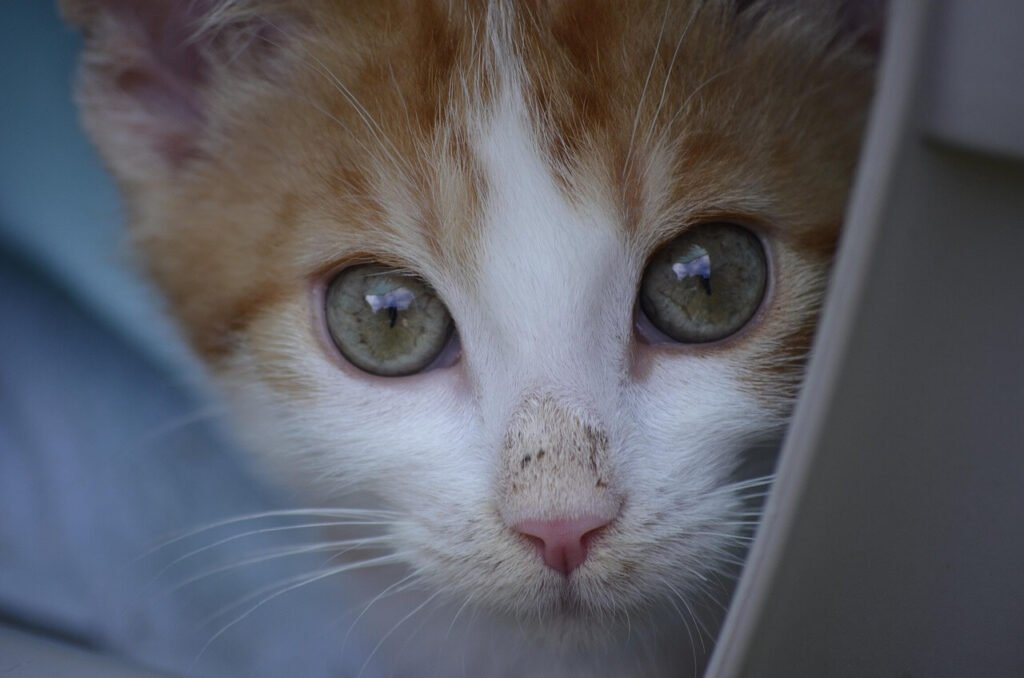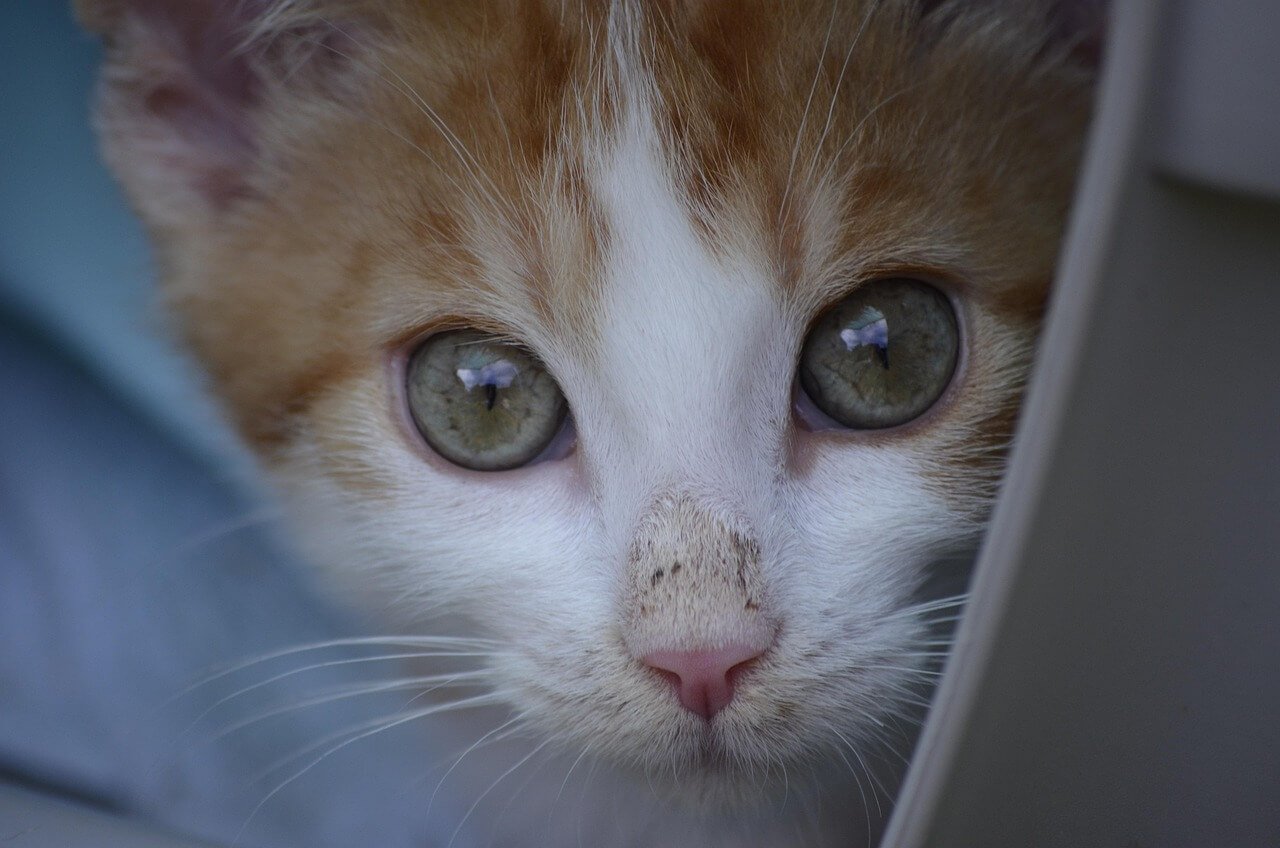Cat Breath Smells Like Rotten Meat: Causes, Concerns, and Solutions
If you’ve ever noticed that your cat’s breath smells like rotten meat, it’s natural to feel concerned. While occasional bad breath in cats can be harmless, a persistent foul odor might indicate an underlying health issue that requires attention. Cats are known for their meticulous grooming habits, but their oral health is often overlooked by pet owners. Understanding the potential causes of this unpleasant smell—and knowing how to address them—can help ensure your feline friend stays healthy and comfortable. In this article, we’ll explore why your cat’s breath might smell like rotten meat, what steps you can take to remedy the situation, and when it’s time to consult a veterinarian.
Uncovering the Culprits: Why Does My Cat’s Breath Smell Like Rotten Meat?
There are several reasons why your cat’s breath might have an unpleasant odor resembling rotten meat. Identifying the root cause is essential for addressing the issue effectively. Here are some common culprits:
Dental Disease :
Gingivitis, periodontal disease, or tooth decay can lead to bacterial buildup, causing foul-smelling breath.Abscessed Teeth :
Infected or abscessed teeth can produce a strong, rotten odor due to pus and decay.Foreign Objects :
Small objects stuck in your cat’s mouth, such as a piece of food or a string, can rot and emit a foul smell.Kidney Disease :
Kidney issues can cause metabolic waste products to build up, leading to ammonia-like or rotten odors on the breath.Oral Tumors :
Growths in the mouth can trap food particles and bacteria, resulting in a putrid smell.
While some of these causes are relatively minor, others may indicate serious health concerns. It’s important to investigate further if the smell persists or worsens.
Red Flags to Watch For: When Bad Breath Indicates a Bigger Problem
A rotten meat smell coming from your cat’s mouth might be accompanied by other symptoms that signal an underlying issue. Paying attention to these signs can help you determine whether your cat needs immediate veterinary care. Here’s what to look out for:
Excessive Drooling :
Drooling can indicate pain or discomfort in the mouth, often linked to dental problems.Difficulty Eating :
If your cat hesitates to eat or chews on one side of their mouth, it could point to dental pain.Swollen or Bleeding Gums :
Inflamed gums or visible bleeding are signs of gum disease or infection.Weight Loss :
Sudden weight loss alongside bad breath may suggest systemic issues like kidney disease.Behavioral Changes :
Lethargy, irritability, or hiding more than usual can indicate your cat is feeling unwell.
These symptoms, combined with foul breath, should prompt a visit to the vet. Early intervention can prevent complications and improve your cat’s quality of life.
Check this guide 👉Understanding the Cost of Cat Dental Cleaning: Best 7 Tips!
Check this guide 👉Top 4 Best Cat Toothbrushes for Ultimate Dental Care!
Check this guide 👉Top 5 Best Cat Toothpaste Options for Optimal Oral Health!

Potential Causes of Bad Breath | Possible Solutions |
|---|---|
Dental disease | Schedule a professional dental cleaning |
Abscessed teeth | Antibiotics or tooth extraction by a vet |
Foreign objects | Remove the object carefully or seek help |
Kidney disease | Diagnostic tests and dietary adjustments |
Oral tumors | Veterinary examination and treatment plan |
Proactive Care: How to Keep Your Cat’s Breath Fresh
Prevention is always better than cure when it comes to your cat’s oral health. By incorporating simple practices into your routine, you can reduce the risk of foul-smelling breath and related health issues. Here are some preventive measures to consider:
Regular Brushing :
Use a cat-safe toothbrush and toothpaste to clean your cat’s teeth 2–3 times a week.Dental Treats and Toys :
Provide treats and toys designed to reduce plaque and tartar buildup.Routine Vet Check-Ups :
Schedule annual dental exams to catch problems early before they escalate.Balanced Diet :
Feed high-quality food that supports overall health, including dental wellness.Monitor Behavior :
Keep an eye on your cat’s eating habits and oral hygiene to detect issues promptly.
By staying proactive, you can help maintain your cat’s oral health and prevent unpleasant odors from developing.
Knowing When It’s Time to Seek Professional Help
While some cases of bad breath can be managed at home, others require immediate veterinary attention. Recognizing the signs that warrant a trip to the vet ensures your cat receives timely care. Here’s when you should consult a professional:
Persistent Odor :
If the rotten meat smell doesn’t go away after basic cleaning and observation, it’s time to see a vet.Visible Mouth Issues :
Swollen gums, loose teeth, or sores in the mouth need professional evaluation.Sudden Behavioral Changes :
Unexplained lethargy, aggression, or withdrawal could indicate pain or illness.Refusal to Eat :
A cat who stops eating entirely may have a severe dental or systemic issue.Accompanying Symptoms :
Vomiting, diarrhea, or excessive thirst alongside bad breath could signal a larger problem.
Prompt veterinary care can make all the difference in diagnosing and treating serious conditions before they progress.
Spotting the Warning Signs: How to Identify Dental Problems Early
Dental disease is one of the most common causes of bad breath in cats, but it often goes unnoticed until it becomes severe. Recognizing the early signs can help you address the issue before it escalates into a more serious condition. Here are some key indicators of dental disease in cats:
Yellow or Brown Tartar Buildup :
Visible tartar on the teeth is a sign of plaque accumulation and poor oral hygiene.Red or Bleeding Gums :
Inflammation or bleeding gums indicate gingivitis or periodontal disease.Bad Breath That Persists :
A constant foul odor, especially resembling rotten meat, suggests bacterial infection.Pawing at the Mouth :
Cats may paw at their face or mouth if they’re experiencing pain or discomfort.Chewing on One Side of the Mouth :
Avoiding chewing on certain teeth can signal tooth pain or damage.
Early detection of these signs allows for timely intervention, which can prevent further complications and improve your cat’s quality of life. Regular monitoring is essential for maintaining their oral health.
Food Choices Matter: How Diet Can Support Your Cat’s Oral Hygiene
What your cat eats plays a significant role in their oral health. Certain dietary adjustments can help reduce plaque buildup and promote fresher breath. Here are some ways to optimize your cat’s diet for better oral hygiene:
Wet Food Over Dry Kibble :
Wet food can help keep your cat hydrated and reduce dry food particles that stick to teeth.Specialized Dental Diets :
Some commercial cat foods are formulated to reduce tartar and plaque.Limited Starchy Treats :
High-carbohydrate treats can contribute to plaque formation; opt for low-carb alternatives.Raw or Natural Diets :
Some pet owners find that raw diets encourage natural chewing, which helps clean teeth.Hydration-Focused Meals :
Adding water to dry food or feeding moisture-rich meals supports saliva production, which aids in cleaning the mouth.
By making thoughtful dietary choices, you can support your cat’s oral health and reduce the risk of bad breath. Always consult your vet before making significant changes to your cat’s diet.
Simple Solutions: How to Address Mild Cases of Bad Breath at Home
If your cat’s breath has a mild odor and no serious symptoms are present, there are several home remedies you can try to freshen their breath. These methods are not substitutes for professional care but can complement regular veterinary check-ups. Here are some safe and effective options:
Cat-Safe Breath Fresheners :
Use sprays or gels specifically designed to neutralize odors in cats’ mouths.Herbal Supplements :
Some herbs like parsley or chlorophyll supplements can naturally freshen breath.Coconut Oil Wipes :
Gently wiping your cat’s teeth with coconut oil can help reduce bacteria.Probiotics for Pets :
Probiotics can improve gut health, which may indirectly reduce bad breath caused by digestion issues.Regular Playtime and Exercise :
Encouraging activity can boost overall health, including oral hygiene, by reducing stress and improving circulation.
While these remedies can help manage mild cases, they should not replace professional care if the problem persists. Always prioritize your cat’s comfort and consult a vet if unsure.
Frequently Asked Questions About Cat Breath Smelling Like Rotten Meat
Is it normal for my cat’s breath to smell bad sometimes?
Occasional mild odor is normal, but a strong, persistent smell like rotten meat is not.
Can I use human toothpaste to clean my cat’s teeth?
No, human toothpaste is toxic to cats; always use cat-safe products.
How often should I check my cat’s mouth?
Inspect your cat’s mouth monthly for signs of redness, swelling, or unusual odors.
What if my cat won’t let me brush their teeth?
Try dental wipes, gels, or treats as alternatives to brushing.
Could bad breath be a sign of something non-dental?
Yes, systemic issues like kidney disease or diabetes can also cause foul-smelling breath.
Final Thoughts: Prioritizing Your Cat’s Oral Health
A cat’s breath smelling like rotten meat is more than just an unpleasant experience—it can be a warning sign of underlying health issues. By staying vigilant about your cat’s oral hygiene and seeking veterinary care when needed, you can ensure they remain happy and healthy. Remember, prevention and early intervention are key to avoiding complications. With proper care, you can keep your feline companion’s breath fresh and their smile bright, strengthening the bond you share for years to come. After all, a healthy cat is a happy cat, and nothing beats the joy of cuddling without worrying about unpleasant odors.
Do Cats Have Taste Buds? Best 7 Expert Tips! – Discover how cats experience flavors and why their taste is so unique.
Do Dogs Have Taste Buds? Best 7 Expert Tips! – Discover how dogs experience taste, their preferences, and what it means for their diet and health.
Can Cats Taste Sweet? Best 7 Expert Tips! – Discover why cats can’t taste sweetness, how it affects their diet, and tips to keep them healthy and happy.
Can Dogs Taste Sweet? Best 7 Expert Tips! – Discover how dogs perceive sweetness, which foods are safe, and tips to manage their sweet cravings responsibly.





